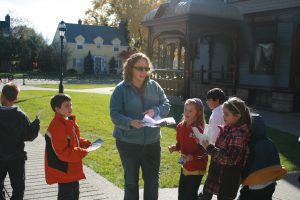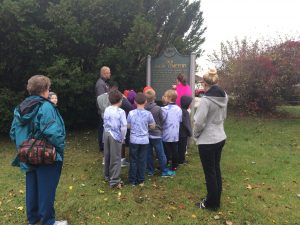By Dr. Gloria Tseng, History Department
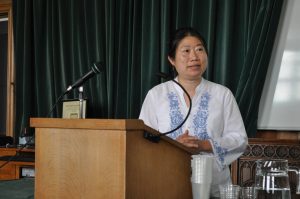
“Are you on vacation now?” my friendly neighbors often ask during the summer months. True, the academic year ends when I send in the final grades for my classes in May. Then I enter my gardening phase, which is late spring and early summer, when I’m hopeful for the new growing season and before the Midwestern sun demonstrates its full force. Yet, the reading and writing that are integral to the academic life does not cease. In fact, once final grades are in I turn my attention to the writing of conference papers for presentation at two annual conferences usually held at the end of June or the beginning of July.
The Yale-Edinburgh Group on the History of the Missionary Movement and World Christianity holds its yearly meetings at the University of Edinburgh and Yale University, with the two universities alternating as hosts every year. The Andrew F. Walls Centre for the Study of Asian and African Christianity also hosts an annual conference, which takes place at Liverpool Hope University in Liverpool. This has been my yearly ritual for the past eight years or so: almost two months of frantic reading and writing, followed by attendance and presentations at these conferences, and then more (albeit less frantic) reading and writing back in Holland as I continue working on a manuscript on Christianity in twentieth-century China, an ongoing project of mine for a good number of years now. This is the life of a history professor in a nutshell: one never graduates!
I like to write in the quiet of my study at home. My desk is in front of a window that looks out to a big maple tree and my vegetable garden in the backyard, and my computer is in front of another window, which looks out to the street. Sometimes I see neighbors walking their dogs; sometimes I see the mailman making his round. The writing isn’t all that glamorous, but it’s the substance of the profession. The traveling to conferences, especially those on the other side of the Atlantic, on the other hand, is always a highlight of my summers. Presenting one’s work to other scholars—some from both sides of the Atlantic, and others from as far afield as Asia, Africa, and Australia—and learning from them provide a necessary stimulus to my own work. “Iron sharpens iron” (Proverbs 27:17).
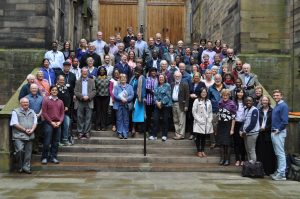
This year, however, was special. I did something I had never done before, almost extravagant. The Yale-Edinburgh meeting was to take place in Edinburgh this summer, and my cousin Jon, a newly minted MD, wanted to tag along. We decided to rent a cottage on the Isle of Skye, an island of some 600 square miles in northwest Scotland, for eight days. I persuaded a British friend to take us in a rented car. We experienced the full range of Scottish weather—rain, mist, wind, and two whole days of sunshine. The setting was fit for Wagner’s operas. We hiked up muddy and stony mountain trails where sheep wandered at will. We chatted with an old shepherd whose affection for his beasts was evident. The memory of this shepherd remained vivid in my mind for a long time, for he brought to my mind the One who called himself the Good Shepherd—
The Good Shepherd of Skye
Windswept, silver-grey hair,
Wrinkled, weather-beaten,
A ready smile, rough hands,
Accustomed to labor,
Tattered at the elbows–
“I am the Good Shepherd.”
A life of wanderings,
Tales waiting to be heard–
T’was to men such as he,
The angles first announced,
“Glory to God above,
And peace to man on earth.”
Lord, grant me eyes to see,
Thee in this humble man,
My Redeemer and Friend.
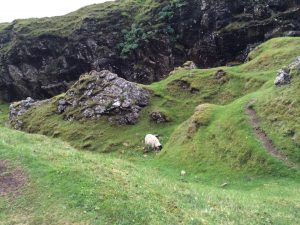
This summer I brought back with me the memory of my unexpected encounter with the Gospel message on the Isle of Skye. I was humbled and moved as never before by the mystery of the Incarnation.
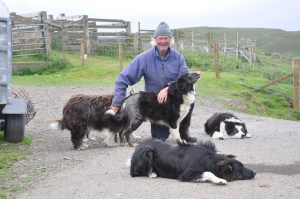


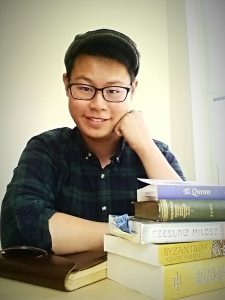 Every college freshman has a Dreaded Question. The sort of thing your roommate’s mom asks almost before you’ve shaken hands, that the Michigan-friendly cashiers on 8th Street will ask to start conversation.
Every college freshman has a Dreaded Question. The sort of thing your roommate’s mom asks almost before you’ve shaken hands, that the Michigan-friendly cashiers on 8th Street will ask to start conversation.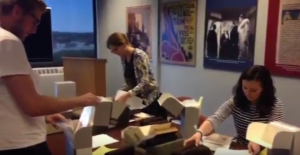 Each student researched a different example of these historic global foods. Noah Switalski ’18 explored how the humble potato has changed diets and societies across the globe after its “discovery” by Spanish conquistadors in Peru. Natalie Cook ’18 examined the central role of sugar in the Atlantic slave trade, with a particular focus on the role of slave women on Caribbean sugar plantations. Margaret Dickinson ’17 researched the development of curry as a cultural exchange between British colonizers and many different groups across the Indian subcontinent. Leland Cook ’17 worked on the long history of rice, with a focus on how global food aid has sometimes been a form of neo-colonialism. All together, these four case studies show a history of growing global connectivity from the crossing of the Atlantic into the twenty-first century. Cullin Smith ’17 also worked with us for a few weeks. He helped to shape the overall project by analyzing the existing literature on global food history.
Each student researched a different example of these historic global foods. Noah Switalski ’18 explored how the humble potato has changed diets and societies across the globe after its “discovery” by Spanish conquistadors in Peru. Natalie Cook ’18 examined the central role of sugar in the Atlantic slave trade, with a particular focus on the role of slave women on Caribbean sugar plantations. Margaret Dickinson ’17 researched the development of curry as a cultural exchange between British colonizers and many different groups across the Indian subcontinent. Leland Cook ’17 worked on the long history of rice, with a focus on how global food aid has sometimes been a form of neo-colonialism. All together, these four case studies show a history of growing global connectivity from the crossing of the Atlantic into the twenty-first century. Cullin Smith ’17 also worked with us for a few weeks. He helped to shape the overall project by analyzing the existing literature on global food history.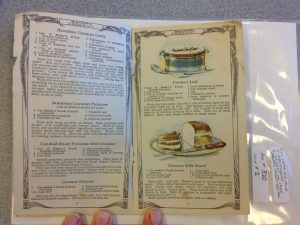 While we worked mostly with secondary sources, we also spent a few days at the
While we worked mostly with secondary sources, we also spent a few days at the 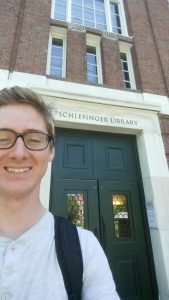 I believe that looking into the past gives the observer a chance to understand what was then little understood.
I believe that looking into the past gives the observer a chance to understand what was then little understood. 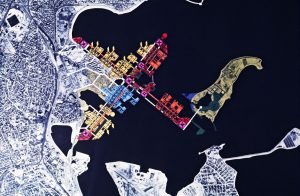
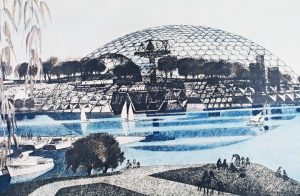 Video production and interviewing, as it turns out, are completely separate from hardcore archival research.
Video production and interviewing, as it turns out, are completely separate from hardcore archival research. 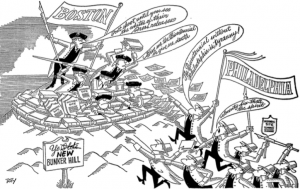 The story I wrote was partially about failure. Boston’s city planners proposed the megastructure thinking it would solve the social ills of their day, and instead received the disapproval of the entire city, especially South Boston, on the grounds that it would negatively impact the status quo.
The story I wrote was partially about failure. Boston’s city planners proposed the megastructure thinking it would solve the social ills of their day, and instead received the disapproval of the entire city, especially South Boston, on the grounds that it would negatively impact the status quo.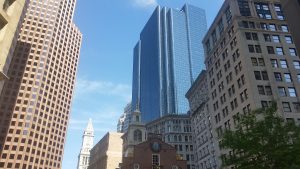 What I can say thus far is that Boston has given me the chance to work with exceptional staff, live and laugh with an exceptional host family, and study in some of the nation’s top archives, all the while completing work that I (literally) spent hours dreaming about.
What I can say thus far is that Boston has given me the chance to work with exceptional staff, live and laugh with an exceptional host family, and study in some of the nation’s top archives, all the while completing work that I (literally) spent hours dreaming about. 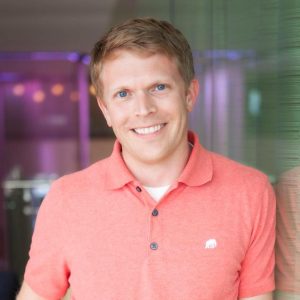 I graduated from Hope College with a double major in History and Political Science in 2001 and have worked for the City of Grand Rapids since 2006. I manage the Design & Development Department, which is responsible for planning and zoning, development review, permits and inspections. My work responsibilities are wide ranging including finance and budgeting, human resources, communications, technology administration, policy development and supervision. This is a busy time for our department. The fabric of Grand Rapids is changing rapidly.
I graduated from Hope College with a double major in History and Political Science in 2001 and have worked for the City of Grand Rapids since 2006. I manage the Design & Development Department, which is responsible for planning and zoning, development review, permits and inspections. My work responsibilities are wide ranging including finance and budgeting, human resources, communications, technology administration, policy development and supervision. This is a busy time for our department. The fabric of Grand Rapids is changing rapidly.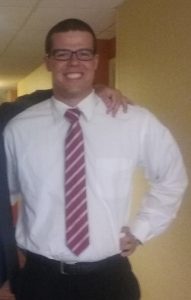 I researched for the department in the summer of 2015. I heard about the opportunity while in an American history class with Dr. Petit and was immediately interested. Dr. Petit, the faculty member who would be overseeing this project, was interested in constructing a website about the United War Work Campaign of 1918, an interdenominational effort to raise funds for American soldiers abroad and at home. The topic intrigued me and I had a few conversations with Dr. Petit about what the position of (paid) summer researcher entailed. I filled out a brief application and was accepted into a four-student research team.
I researched for the department in the summer of 2015. I heard about the opportunity while in an American history class with Dr. Petit and was immediately interested. Dr. Petit, the faculty member who would be overseeing this project, was interested in constructing a website about the United War Work Campaign of 1918, an interdenominational effort to raise funds for American soldiers abroad and at home. The topic intrigued me and I had a few conversations with Dr. Petit about what the position of (paid) summer researcher entailed. I filled out a brief application and was accepted into a four-student research team.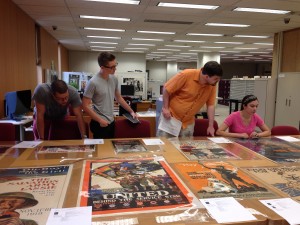 By June of 2015, we were on campus doing preliminary research on the different organizations involved in the United War Work Campaign. Each of us took a certain area of the research and dove into finding and reading all of the secondary sources about that area we could. In late July, we flew out to Washington D.C. to meet up with Dr. Petit. We spent a week at the Library of Congress, analyzing primary sources about the United War Work Campaign we couldn’t access elsewhere. We spent the next few weeks building, editing and tweaking the website.
By June of 2015, we were on campus doing preliminary research on the different organizations involved in the United War Work Campaign. Each of us took a certain area of the research and dove into finding and reading all of the secondary sources about that area we could. In late July, we flew out to Washington D.C. to meet up with Dr. Petit. We spent a week at the Library of Congress, analyzing primary sources about the United War Work Campaign we couldn’t access elsewhere. We spent the next few weeks building, editing and tweaking the website.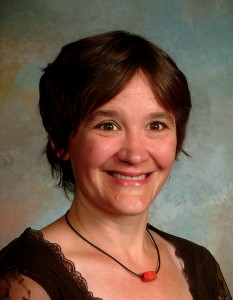 As a new chair of the Department of History, I feel that I am standing on the shoulders of giants. I have worked under three fabulous chairs during my time at Hope College: Dr. Albert Bell; Dr. Janis Gibbs; and Dr. Marc Baer. Their leadership elevated our department in many areas, particularly the expansion of student/faculty research collaboration, the globalization of our curriculum and the consideration of the relationship between teaching, scholarship and faith. All of these chairs have participated in creating a strong historical community at Hope College, and I look forward to building on their achievements.
As a new chair of the Department of History, I feel that I am standing on the shoulders of giants. I have worked under three fabulous chairs during my time at Hope College: Dr. Albert Bell; Dr. Janis Gibbs; and Dr. Marc Baer. Their leadership elevated our department in many areas, particularly the expansion of student/faculty research collaboration, the globalization of our curriculum and the consideration of the relationship between teaching, scholarship and faith. All of these chairs have participated in creating a strong historical community at Hope College, and I look forward to building on their achievements.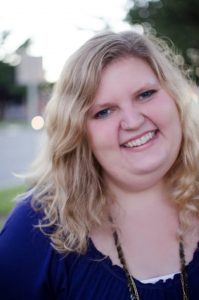 I’ve always loved history. I was the kid who made her friends watch Gladiator over the latest rom-com, stayed up way too late devouring novels like The Scarlet Pimpernel, and insisted on taking summer vacations to historic Williamsburg. I made it all the way to the State level of National History Day with a one-woman play I wrote and performed about Spartacus (yes, you read that correctly), and I helped create a film for my eighth grade algebra class about time travel.
I’ve always loved history. I was the kid who made her friends watch Gladiator over the latest rom-com, stayed up way too late devouring novels like The Scarlet Pimpernel, and insisted on taking summer vacations to historic Williamsburg. I made it all the way to the State level of National History Day with a one-woman play I wrote and performed about Spartacus (yes, you read that correctly), and I helped create a film for my eighth grade algebra class about time travel.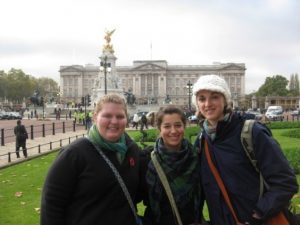
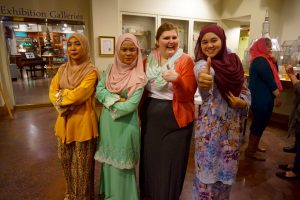
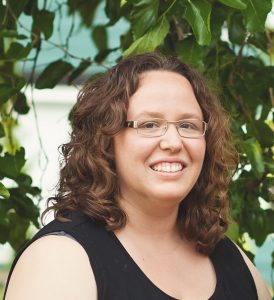 When I arrived on Hope’s campus in the fall of 2001 the thought of becoming a history major had never entered my mind. Like many people, I discovered new things about myself during my freshman year and knew I needed to find a new focus. My parents encouraged me to look back on my high school work and volunteer experiences for inspiration for what I would like to do with the rest of my life. The thing that immediately came to mind was my time spent as a volunteer tour guide at the
When I arrived on Hope’s campus in the fall of 2001 the thought of becoming a history major had never entered my mind. Like many people, I discovered new things about myself during my freshman year and knew I needed to find a new focus. My parents encouraged me to look back on my high school work and volunteer experiences for inspiration for what I would like to do with the rest of my life. The thing that immediately came to mind was my time spent as a volunteer tour guide at the 